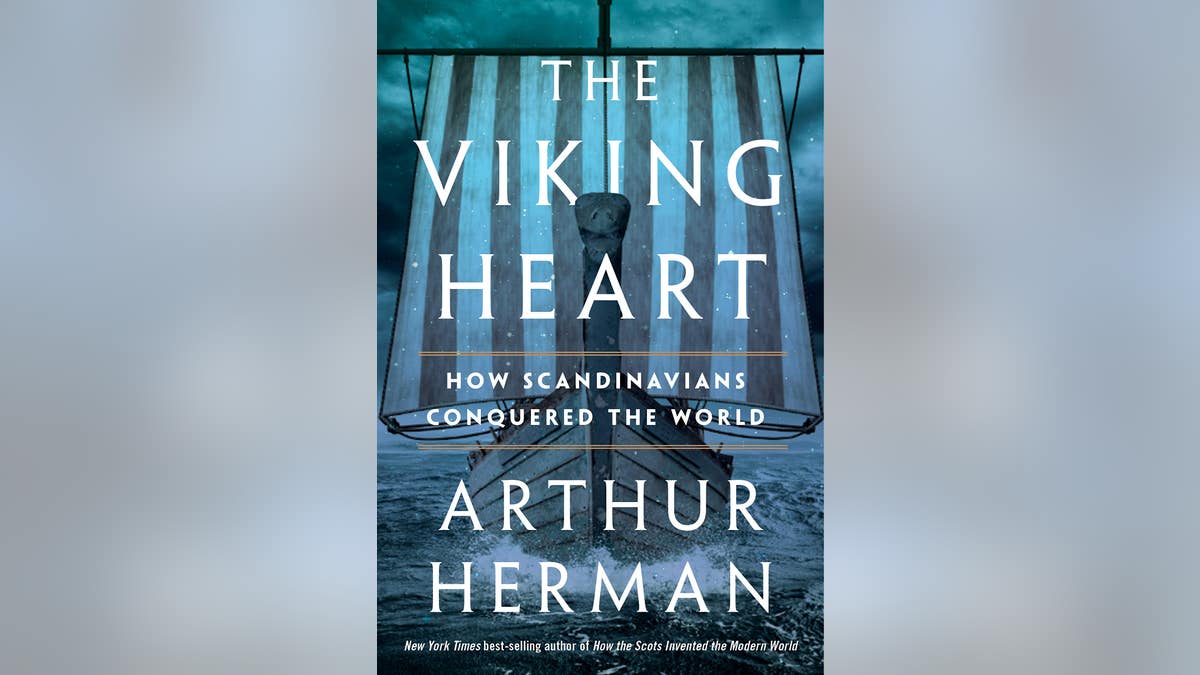How to think like a Viking during the pandemic
Author Arthur Herman shares his tips on how to adapt during the pandemic, traces back to Nordic roots
Can the distant past offer answers to the crises plaguing modern-day Americans? Even if it did, would those Americans listen?
The answer to both questions is yes.
Twenty years after 9/11, Americans find are wondering what’s ahead after COVID and our debacle in Afghanistan.
ARTHUR HERMAN: HOW TO THINK LIKE A VIKING IN THE AGE OF COVID
In September 2001 I published a book called "How The Scots Invented The Modern World." It showed how a small ethnic group – the Scots of Scotland – became the carriers of the seeds of modernization.
The book revealed how the key thinkers of Scotland’s 18th century, including Adam Smith, laid down the basic assumptions about capitalism, self-government and the power of individual enterprise that spread around the world, including to America, with transformative results – one of which was the U.S. Constitution.
CLICK HERE TO GET THE OPINION NEWSLETTER
Published in the shadow of 9/11, my publisher and I thought the book would be all but forgotten in the tumultuous and chaotic weeks afterward. America had real enemies, and real issues to face. Who was going to care about what Adam Smith said or did 200 years ago, or how Scots like James Wilson and David Hume influenced the U.S. Constitution?
It turned out, lots of people did. The book became a New York Times bestseller, and a bestseller in the U.K. and Canada.
More from Opinion
The Scottish experience in shaping the modern world and America suddenly had tremendous resonance with post-9/11 readers. Right or left, liberal or conservative, they recognized in the themes of the book a message about the importance of civilized values and freedom, and the self-confidence we were going to need in the face of barbarism and terror.
My new book, "The Viking Heart: How Scandinavians Conquered the World," is about much more than the fearsome Norsemen who ranged around the world 1,200 years ago and laid the foundations for globalization– or their Scandinavian descendants who settled in America and became part of the American Dream.
It’s also about the links between freedom and community, and how a polarized nation can become one again.
The answer lies in the cultural skill set the Vikings forged in a harsh and unforgiving homeland and passed on to their descendants – and then to the immigrants coming to America.

(Mariner Books)
The first component of that set was a robust commitment to family and community. The Danes have a word for it: Samfundssind or social mindedness (samfund meaning ‘society’ and sind ‘mind’). For the Vikings at peace or war, there was no survival without communal survival.
The Vikings’ willingness to venture into the unknown for the sake of community and family has universal value.
That necessary cooperation built a framework of solidarity and trust that permeated all aspects of life, whether it was digging out a new field for planting from bog and forest or fishing off a rocky windswept coast, doing battle with rivals and strangers or sailing across the Atlantic to the shores of North America – or centuries later making a new life on the American frontier.
The second component is a belief in the value of individual hard work, what the Norwegian American sociologist Thorstein Veblen called the instinct of workmanship, a "disposition to do the next thing and do it as well as may be."
You can see this work ethic in the building a long ship or the writing a symphony like the Danish composer Neils Gade or creating a disease-free strain of wheat as Norwegian American biologist Norman Borlaug did – or in the creation of a quantum computer. It’s an instinct that doesn’t just look for ways to benefit ourselves, but also the community – maybe as much, if not more than ourselves.
Side by side with that belief in hard work, however, was the willingness to allow individuals to take extreme risks, for the same reason: for the benefit of the whole. That was as much the case with Viking adventurers crossing the Atlantic, or later polar explorers like Roland Amundson or today’s Liv Arnesen, or Norwegian resistance fighters venturing into the frozen North to take out Germany’s nuclear program during World War II.
Swedish American Charles Lindbergh took the same extreme risk with his solo flight across the Atlantic in 1927, knowing his achievement wouldn’t just make him famous but change people’s understanding of the importance of air travel – and eventually of air power for America in the Second World War.
Today we recognize that the Vikings’ willingness to venture into the unknown for the sake of community and family has universal value. We can see that theirs was a freedom that rested on the foundations of a shared culture built on mutual trust, which their descendants then brought to America and made part of their new homeland.
CLICK HERE TO GET THE FOX NEWS APP
It’s those same values that I believe are now waiting to save us from the storm and even lift the shadows of 9/11, two decades later. They are the antidote to the toxins of critical race theory and wokeness; they are the tonic that will restore America’s faith in itself.
These values will make American leadership a beacon of light in the world again, and make American power a force to be respected – a force infused with the spirit of the Viking heart.






















